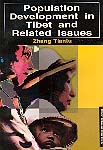Description
Peoples Public Lectures: The Communist Party of China and the Modernization of State Governance System and Capacity
Author: Jin Yinan, et al.
Order No. 1213
ISBN-13: 9781622461073
ISBN-10: 162246107X
Binding: Paperback
Publisher: Homa & Sekey Books
Pub Year: 2023
Language: English
Size: 6 x 8
Page: 254
Price: $29.95. You pay only $17.97 (after 40% discount).
About the Book
图书摘评
The greatest strength of Chinese culture is that it is non-religious and non-preaching, with a strong humanistic spirit. – Li Ling, Peking University
From “Sick Man of East Asia” to National Revival. In just half a century, the world has been turned upside down, from a scattered piece of sand to the most organized country in the world. – Jin Yinan, National Defense University
The American way of development is not only unaffordable for us, but also for Europe. When I told this to the Europeans at the China-Europe Forum at the Hong Kong Polytechnic University in July 2010, they were shocked and said they had never heard of such an argument. – Wen Tiejun, Renmin University of China
图书介绍
This book aims at promoting the modernization of the national governance system and the ability to govern in China, with the theme of summarizing experience, looking to the future, and exploring the way to long-term stability for China. With the historical experience of Chinese traditional governance, the heritage of the Chinese revolution, the history of the construction and reform of the new China, and the overall goal and task of the comprehensive deepening reform as the perspective.
Thirteen renowned scholars at home and abroad met the challenges by offering a number of open lectures at eight universities in Beijing that focused on the major theoretical and practical issues. They tried to provide authoritative interpretation of the Chinese road, Chinese system, Chinese theory and Chinese culture, expounding the new philosophy of governance, new ideas and new strategies in a strong, persuasive and effective way.
Thirteen renowned scholars at home and abroad including Jin Yinan, Wen Tiejun and Pan Wei, met the challenges by offering a number of open lectures at eight universities in Beijing that focused on the major theoretical and practical issues. They tried to provide authoritative interpretation of the Chinese road, Chinese system, Chinese theory and Chinese culture, expounding the new philosophy of governance, new ideas and new strategies in a strong, persuasive and effective way.
Table of Contents
Preface
Part I: Historical Experience
What Is Tradition?
What Is the Basic Experience of Our Governance for Thousands of Years?
002 I Urge the God of Heaven to Revive / Li Ling
The greatest characteristic of the Chinese tradition is the great unity of the state, religious pluralism, and secularism. The greatest strength of Chinese culture is that it is non-religious and non-preaching, with a strong humanistic spirit.
013 The Successes and Failures of Governance through the Ages / Han Yuhai
Our path is not a repetition of the path of the West. Our era is not the era of the First Emperor of Qin, the Martial Emperor of Han, Emperor Taizong of Tang and Emperor Taizu of Song. Our road is the road that has never been seen before by the Chinese people since 1840, especially since 1921, under the leadership of the Chinese Communist Party.
037 Unity and Division / Du Xiaoqin
The Yongzhen Reform of the late Tang dynasty was a historical movement seeking unification in a divided pattern. Rereading the Tang theory of Feudalism has important implications for modernizing governance systems and capabilities today.
Part II: The Revolutionary Heritage
What Is a Revolution?
What Is the Great Legacy of the Chinese Revolution?
054 From “Sick Man of East Asia” to National Revival / Jin Yinan
At the beginning of the 20th century, Sun Yat-sen said that 400,000,000 Chinese people were just a scattering of sand, while in the 1950s, the West said that the New China had become the most organized country in the world. In just half a century, the world has been turned upside down, from a scattered piece of sand to the most organized country in the world, and this is a major contribution made by the Chinese Communist Party to the Chinese nation.
072 Mao Zedong Thought and Contemporary World System Governance / Zhang Wenmu
Mao Zedong Thought is the product of the combination of Marxism-Leninism and Chinese social practice. It is the Chinese people’s practice in solving modern world problems, providing Chinese ideas and Chinese solutions to world governance. Therefore, to understand Mao Zedong Thought, it is necessary to recognize not only the basic threads of the international communist movement, but also the characteristics and veins of Chinese history, especially the semi-colonial history of modern China and its cultural evolution.
Part III: Construction and Reform
What Is the Basic Experience of Our Construction and Reform?
Why Can’t the Three Decades before and after the Development of the New China Negate Each Other?
090 The Chinese Experience in Crisis Management / Wen Tiejun
I am not a leftist, let alone a rightist, I am a factualist, a China Roadist. Putting labels on our predecessors will not solve the problems of China.
105 The Chinese Way and the “Four Thirty Years” of the Chinese Communist Party / Pan Wei
As in the past three periods of the Chinese Communist Party, the road is bound to be winding, setbacks are bound to continue, and there are bound to be many people who waver, leave, or even betray to the hostile camp of our Party in times of difficulties. But the future of the Party is bright, the future of China is bright, and the Chinese nation will not fall at the threshold of rejuvenation.
Postscript / 117




